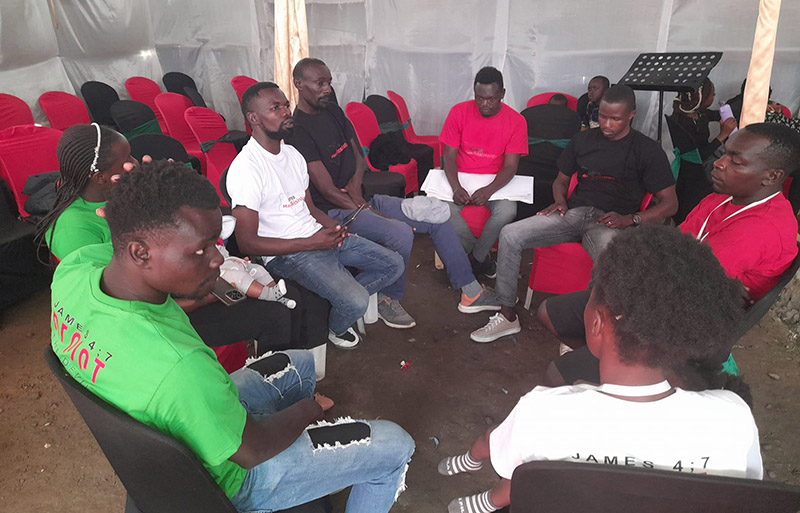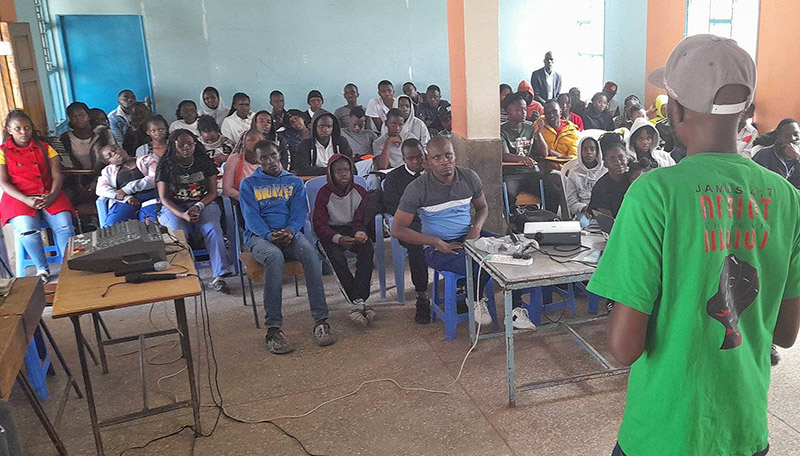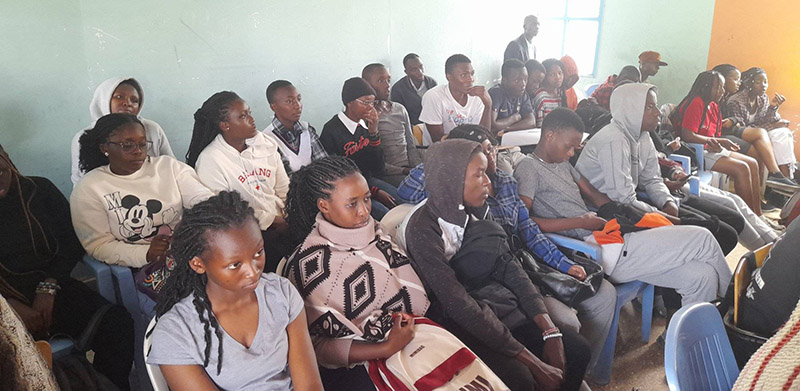As Tench Coxe explained:
"The old federal Constitution contained many of the same things, which from error or disingenuousness are urged against the new one. Neither of them have a bill of rights, nor does either notice the liberty of the press, because they are already provided for by the State Constitutions; and relating only to personal rights, they could not be mentioned in a contract among sovereign states."
Coxe provided an example, by pointing out that "there is nothing in the new constitution to prevent a trial by jury."
In Federalist 84, Hamilton famously warned that listing rights could imply that any unlisted rights were unprotected, a dangerous precedent.
"I go further and affirm that bills of rights, in the sense and to the extent in which they are contended for, are not only unnecessary in the proposed Constitution but would even be dangerous. They would contain various exceptions to powers not granted; and, on this very account, would afford a colorable pretext to claim more than were granted."
He continued, citing a lack of power over the freedom of the press as an example of something not delegated to the federal government in the constitution, and thus, unnecessary to include in a bill of rights.
"For why declare that things shall not be done which there is no power to do? Why, for instance, should it be said that the liberty of the press shall not be restrained, when no power is given by which restrictions may be imposed?"
Hamilton forcefully argued that under this structure of delegated and reserved powers, "the Constitution is itself, in every rational sense, and to every useful purpose, a bill of rights."
3. Anti-Federalist Rebuttals
However, Anti-Federalists weren't convinced, not even close.
In the weeks following the Philadelphia Convention, George Mason’s objections were widely circulated. His first and foremost concern was “There is no Declaration of Rights.”
A week after James Wilson’s speech dismissing the need for a Bill of Rights, the Federal Farmer published his fourth essay. In it, he directly challenged the Federalist claim that explicit protections were unnecessary under the Constitution's system of delegated and reserved powers.
“It is said, that when the people make a constitution, and delegate powers, that all powers not delegated by them to those who govern, is reserved in the people.”
After restating the Federalist argument, Federal Farmer drew attention to how this principle was already implemented under the Articles of Confederation, where Article II explicitly reserved rights and powers to the states. The new Constitution lacked such an express reservation, raising concerns that this safeguard was being deliberately abandoned.
“And that the people, in the present case, have reserved in themselves, and in there state governments, every right and power not expressly given by the federal constitution to those who shall administer the national government.”
Federal Farmer then argued that Wilson’s explanation of delegated and reserved powers was not an objective truth. Instead, politicians - then and now - tend to adopt whichever view best serves their political goals. This ambiguity makes explicit protections all the more necessary to prevent abuse.
“It is said, on the other hand, that the people, when they make a constitution, yield all power not expressly reserved to themselves. The truth is, in either case, it is mere matter of opinion, and men usually take either side of the argument, as will best answer their purposes.”
He then closed with the central warning: governments inevitably seek to expand their own power, especially in areas where the limits of authority are unclear. To counteract this tendency, Federal Farmer insisted that wise constitution-makers explicitly define how powers are delegated and reserved.
“But the general presumption being, that men who govern, will, in doubtful cases, construe laws and constitutions most favorably for increasing their own powers; all wise and prudent people, in forming constitutions, have drawn the line, and carefully described the powers parted with and the powers reserved.”
In the Virginia Ratifying Convention, Patrick Henry argued that this federalist view of delegated and reserved powers was novel - because it had always been the other way around.
"I repeat, that all nations have adopted this construction - That all rights not expressly and unequivocally reserved to the people, are impliedly and incidentally relinquished to rulers; as necessarily inseparable from the delegated powers. It is so in Great-Britain: For every possible right which is not reserved to the people by some express provision or compact, is within the King's prerogative."
For Patrick Henry and many other Anti-Federalists, this new kind of system - without an express declaration - dangerously left the reservation of rights and powers to implication:
"If you intend to reserve your unalienable rights, you must have the most express stipulation. For if implication be allowed, you are ousted of those rights. If the people do not think it necessary to reserve them, they will be supposed to be given up."
A stark example from the Articles of Confederation - which was adopted during the fight with Great Britain - emphasized his point: unless the Constitution included a reservation of rights and powers as had been done under the Articles, the federal government would be far more prone to abuse of power.
"How were the Congressional rights defined when the people of America united by a confederacy to defend their liberties and rights against the tyrannical attempts of Great-Britain? The States were not then contented with implied reservation. No, Mr. Chairman. It was expressly declared in our Confederation that every right was retained by the States respectively, which was not given up to the Government of the United States."
















